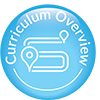Current Teaching Staff:
Mrs K Bumby (Head of Biology)
Mr J Castillo (Head of Physics)
Dr T Sweet (Head of Chemistry)
Mr R Baker, Dr J Cattell, Mrs H Greenaway, Dr D Halliday, Mrs A Isaaks, Mrs J Kittow, Mrs N Leflaive, Mrs K Carpenter-Kay
Examination board and syllabus: AQA GCSE Biology, Chemistry and Physics
Science is an ever-changing subject; not a day goes by without some scientific discovery or issue being reported in the news. We try to incorporate this important aspect of the subject into our teaching, and in doing so inform and encourage the next generation of scientists.
We want our students to be adept at applying their understanding in different contexts and our excellent facilities ensure that they also have opportunity to develop their practical and investigative skills. We are supported by four experienced technicians who ensure the smooth running of eight well-equipped laboratories and five preparation rooms.
The Science Department offer a range of activities to extend our students’ access to and enjoyment of Science. Some of the projects we are involved in are discussed below, more opportunities are always popping up and are advertised via the student notices, the website and newsletters.
If there is anything else you would like us to offer, please contact us to discuss.
British Science Week:
This is a celebration of the best of British Science, Technology, Engineering and Maths featuring fascinating, entertaining and engaging events that take place across the UK. TGGS hold a number of events to celebrate British Science Week, including lunchtime activities such as colourful chemistry, pond dipping, space science culminating in the big fat science quiz at the end of the week.
Trips and Visits:
Each year group will have a minimum of one science trip per year. Year 7 visit Paignton Zoo in the summer term, looking at sustainable food. They even get the chance to eat lot of critters!. Year 8 travel to We the Curious science museum in Bristol, to focus on digestion, space, DNA and more colourful chemistry (plus anything else we can squeeze in).
STEM Club:
KS3 STEM Club complete CREST awards over the course of the year by completing projects that they have designed. This ranges from automobile dynamics through to green house design, the students choose!
Fortnightly Quizzes:
Our 6th Form Ambassadors run competitions and quizzes throughout the year, ranging from posters on Marine Biology through to fortnightly chemistry quizzes. Plus they are all worth house points which adds that competitive element.
Lower School Science (Years 7 and 8)
Our KS3 Curriculum is designed to develop inquisitive scientists that can apply scientific literacy throughout there everyday lives to become critical thinkers. Our curriculum, practical's and extra curricular activities all aim to inspire curiosity within our students about the world and potential issues. Through discussions, hands on activities and group work we aim to upskill and empower our students to be true global citizens.
Students study science over 6 hours a fortnight, covering 4 modules from each subject over the year.
In Year 7 students study:
- Biology: Cells, Reproduction, Producers, Ecosystems
- Chemistry: Practical skill introduction, Particle model, Separating mixtures, acids and alkali's
- Physics: Energy; Thermal energy transfers 1, Forces 1, Solar System
In Year 8 students study:
- Biology: Diet and digestion, Respiration and exercise, Inheritance and evolution and a how science works project.
- Chemistry: Atoms and elements, periodic table, earth and rocks, resources and climate
- Physics: Forces 2, Thermal energy transfers 2, sound, light.
There are 6-8 core assessment pieces per year at Key Stage 3; Feedback and reflection time after highlights misconceptions, gaps and areas of expertise. Verbal feedback is given during lessons regularly. Students are given time develop their knowledge and skills in response to this feedback.
We subscribe to Kerboodle which allows our students to access electronic text books, revision activities and practice questions. https://www.kerboodle.com/app
GCSE Science (Years 9 to 11)
We offer the AQA suite of science GCSE courses, which are started in year 9 and completed in year 11. In year 9 students have two one-hour lessons per science subject every fortnight, which is increased to three lessons per fortnight for double science and 5 lessons for triple per science subject in years 10 and 11.
Each year group is divided into six classes and all classes will be taught Biology, Chemistry and Physics separately and by subject-specialists, which combined with the smaller class sizes of approximately 20 students, will facilitate more individualised learning to meet the needs of our able students. We want our students to enjoy their lessons whilst being fully engaged and challenged; we aim to provide a varied programme of study to provide opportunities to undertake science investigations and extension activities.
Each student is provided with an 'online' text book for use at home and our ‘Revision Packs’ containing past paper materials prior to their examinations. Students are also given the opportunity to purchase CGP resources to support them in their revision, and students may also wish to subscribe to ‘Catalyst’ magazine.
Many of our students choose to study at least one science subject at AS and A2 levels.





